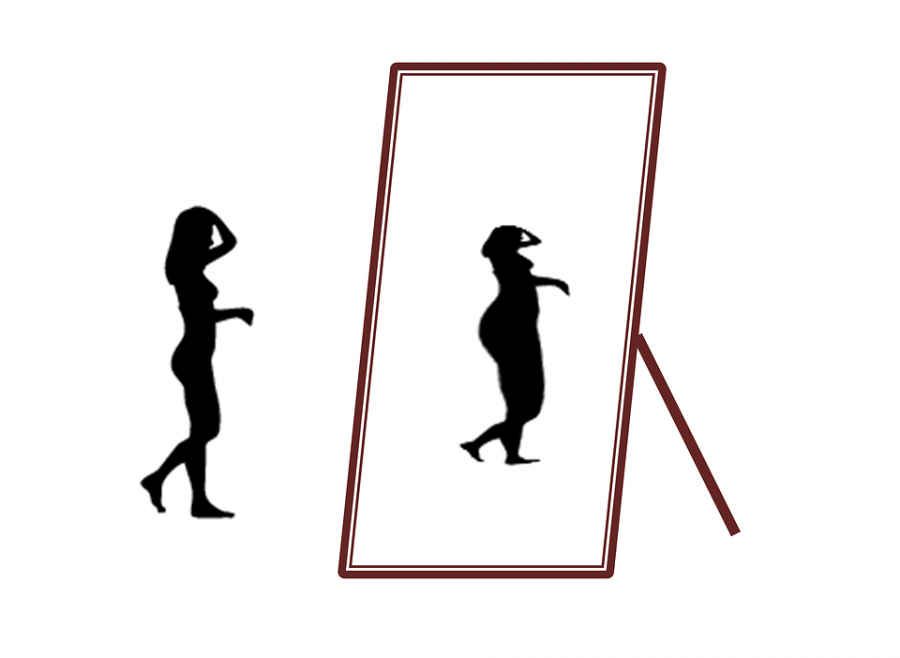Eating Disorders and College Students
College is a time to leave your family behind and find out who you truly are. You get to live on your own and by your own rules. Each day a new challenge may be faced that you might not be prepared for. Classes become stressful and homework piles up and until you get a hang of this new life you might feel like you are losing control.
Do you know someone who may have control issues? Who always seems overwhelmed but is always adding more things to do to their agenda? Maybe you notice that your one friend is always busy around the time of day when everyone else is eating. Then, once you start to pay close attention you realize they are swimming in their clothes and the color of their skin is pale with dark black circles under their eyes.
Have you ever seen this person before? Well, I have when I was an undergraduate student at the University of Illinois at Chicago and my friend was suffering from an eating disorder. I am now a graduate student at Millikin University and want to create awareness for this campus.
According to the Addiction Center, college students are one of the most susceptible groups of people at risk of developing dangerous eating habits such as anorexia, bulimia, and binge eating disorder. This is mostly in part to major life changes. This is why they can be referred to as trigger disorders.
Peer pressures from classmates and acquaintances are among the other reasons college students develop eating disorders. Feeling like you are losing control trying to juggle all of the challenges of college seems to be how this disease starts. Eating disorders threaten millions of college students nationwide each year affecting mostly women.
By the time I had noticed there was something wrong with one of my closest friends, it was too late and she was suffering. The scariest part was how good she was at hiding her illness. What you will find with those suffering from this disease is that they are very good at hiding the signs and symptoms.
My particular friend always seemed happy and many were envious of her “I can take on the world” attitude but deep down inside she was struggling. The only way she felt in control of her life was by starving herself.
She deprived herself of food, help, and a normal shot at a college experience that is wonderful for most people. Even though my friends and I were around her all the time, we did not see that she was dropping weight and spiraling out of control. This was mostly because things are easy to get caught up in with in your own life where you don’t notice loved ones need help.
Friends are good people to take notice of behavior changes because they are the ones that know the nuances of your personality.
The National Eating Disorders Association (NEDA) has a great list of signs to look out for if you think something might be going on with one of your friends.
If you notice any of these signs and do not want to address your friend face to face, seek help from a professional. These warning signs and symptoms include dramatic weight loss or weight gain, becoming more withdrawn, being concerned about eating in public, having a strong need for control, having restrained initiative and emotional expression, making excuses to avoid mealtimes, working out constantly, having stomach cramps, always feeling cold, experiencing dental problems, and having fainting spells and yellowing skin.
An individual with eating disorders will not have all of these signs and symptoms at once, and they vary depending on the eating disorder the person is battling. The chance for recovery increases the earlier an eating disorder is detected. This fact makes it extremely important for you to be aware of some of the warning signs of an eating disorder so intervention can begin immediately.
If you have any concerns about yourself or a loved one, please find help. The NEDA has a helpline where you can call toll-free Monday through Thursday from 9:00 am to 9:00 pm and Friday from 9:00 am to 5:00 pm. This number is 1-800-931-2237.
Thankfully, my friend is alive today and after many different rehab stays, she is finally able to function as herself. However, she missed out on the “normal” college experience where you grow up and live life and have amazing experiences. Instead, she was in and out of hospitals. I can’t help but wonder, if I would have noticed early on would she have been there for the moments that we got to enjoy in college?
Don’t let this happen to someone you love. Make a difference and pay attention. Most importantly, don’t let this happen to yourself. There is always someone willing to help. Make sure you utilize your resources and don’t be afraid to seek guidance. College can be the best time of your life. Everyone deserves that experience.

